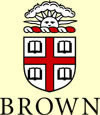The Advanced Sanskrit Curriculum at Brown University
(Graduate Credit is available for Courses numbered above 1000. Doctoral degree work is carried out in Sanskrit Seminars, Advanced-level Tutorial Reading Courses, and approved courses in other programs and departments.)
Upper Level Undergraduate Sanskrit Courses
SAN 0300 Sanskrit Epic Narrative
This course consolidates and extends the knowledge of Sanskrit grammar introduced in first year Sanskrit, acquaints students first-hand with basic themes of ancient Indian culture, and cultivates the reading and interpretive skills necessary to read epic and closely related Sanskrit narrative with comprehension and increasing fluency. Prerequisite SAN0200
SAN 0400 Classical Sanskrit Story Literature
This course introduces students to the more challenging Sanskrit of classical story literature. It also continues to extend the knowledge of Sanskrit grammar introduced in first year Sanskrit and developed in SAN0300, as well as present basic Indian cultural themes. Prerequisite SAN0300
Graduate Level Sanskrit Courses (Open to Qualified Undergraduates)
SAN 1020 Early Sanskrit Philosophy and Religion
Reading in Sanskrit of selections from the Upaniṣads, Bhagavad Gītā, Dharmaśāstras, etc. Prerequisite SAN0200
SAN 1080 The Critical Episodes of the Mahābhārata
A guided tour of the structure of the Mahābhārata, “The Great Epic of India,” through the reading in Sanskrit of selected critical passages. Prerequisite SAN0200
SAN 1100 Vedic Sanskrit
Introduction to reading the Ṛg Veda and later Vedic literature, with particular attention to the grammar of Vedic Sanskrit. Prerequisite SAN0400
SAN1400 The Sanskrit Grammatical Tradition
Introduction to the Sanskrit tradition of vyākāraṇa (grammatical derivation and analysis) through reading Pāṇini’s Aṣṭādhyāyī and commentaries upon it. Prerequisite SAN0400
SAN 1600 Sanskrit belles lettres
Introduction to kāvya (Classical Sanskrit belles lettres)—poetry, drama, and prose narrative—through the reading of authors of the Classical Period as well as works on aesthetics and commentaries upon them. Prerequisite SAN0400
SAN 1800 Classical Schools of Indian Philosophy
Introduction to the classical Brahminic darśanas (comprehensive, rationalized systems of philosophy and, or, theology dealing with Hermeneutics and Philosophy of Language, Logic, Metaphysics, and Ultimate Beatitude) and to corresponding Buddhist and Jain traditions through reading, in Sanskrit, of selected works. Prerequisite SAN0400
Undergraduate Lecture Courses in Classics in Translation
CLAS 0800 Religious and Philosophical Thought In Ancient India
The historical development of the main themes of ancient Indian religious and philosophical thought. Part I: The rise of monism in tension with polytheism, the efficacy of Vedic words and Vedic rites, and early Brahminic cosmology and psychology. Part II: The rise of the non-Brahminic traditions (Jainas, Ājīvikas, and Buddhists) challenging Vedic revelation and everything based upon it (mainly the rites and authority of brahmins). Part III: The ensuing ‘conversations’ among the competing traditions, conversations that developed new world-views and new methods for effecting human well-being in the cosmos.
CLAS 0820 Epics of India
An introduction to Indian epic literature with reading and analysis of one or more of India’s grand and powerful epics, such as the Mahābhārata, the Rāmāyaṇa, the Cilappadikaram, and others.
CLAS 0830 Classics of Indian Literature
This course will introduce, in English translations, the belles lettres of India, primarily of ancient and ‘medieval’ India, primarily of works originally in Sanskrit. We will read selections of the best poetry, drama, and narrative literature of Indian civilization—Kālidasa’s play Śakuntalā, his epic poem The Birth of the Divine Prince, or his poem The Cloud Messenger; and, or, the plays of Bhāsa, the prose of Daṇḍin’s Adventures of the Ten Princes or Bāṇa’s classic novel Kādambari; or selections from the Great Story (Bṛhatkathā) or The Ocean of the Streams of Story (Kathāsaritsāgara), etc., etc., etc. We may also sample some classical Tamil poetry (see A. K. Ramanujan’s The Interior Landscape) or contemporary “classics” such as Banerjee’s Bengali novel Pather Panchali.
CLAS 0840 Classical Philosophy of India
This course introduces the classical traditions of philosophy in India. After presenting a general overview of this discourse and its basic Brahminic, Buddhist, and Jain branches, the course will examine selected traditions and themes from both the several schools concerned entirely with gaining ultimate beatitude (the Highest Good) (the schools known as Sāṃkhya, Yoga, Theravada Buddhism, Mahāyāna Buddhism, Jainism, and Vedānta) and the schools that concentrate on issues of logic, metaphysics, and language and hermeneutics (Nyāya, Vaiśeṣika, and Pūrva Mīmāṃsā, respectively).
CLAS 0990 Concepts of the Self in Classical Indian Literature
Examination of the great Indian epic Mahābhārata and related mythology to introduce the
context for the most ancient speculations of the Ṛg Veda and the subtle teacher-student
dialogues about the self contained in the Bhagavad Gītā and Upaniṣads. We will also
examine the more systematic Indian philosophical texts and note their resonance in ancient and modern European conceptions of self.
